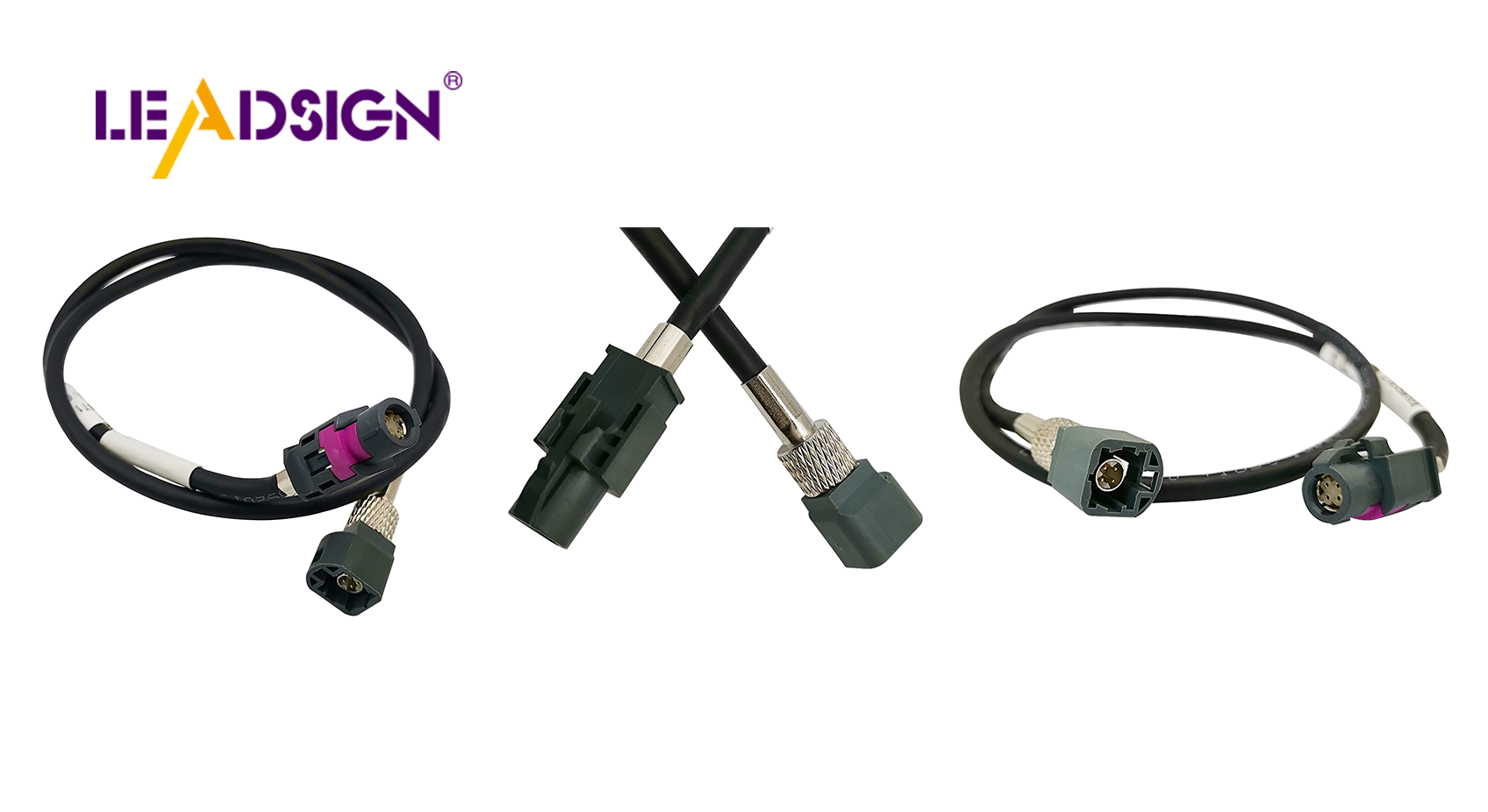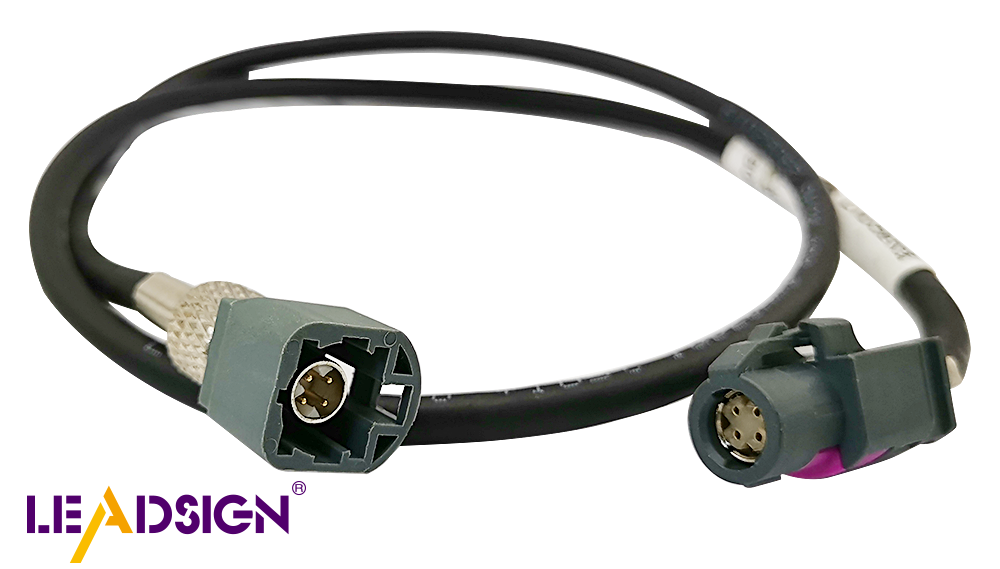What You Need to Know About Auto Wire Connector Types

Automotive wiring connector types are crucial components in vehicles. They facilitate the connection of various electronic components, ensuring seamless functionality. With advancements in automotive technology, a wide range of connector types are now required. Familiarizing oneself with these variations is essential for optimal performance and maintenance. Innovations such as wireless connectors in luxury vehicles are also emerging. Acquiring knowledge about these different types enhances the efficiency and safety of a vehicle. Recognizing their significance enables individuals to make informed decisions for establishing reliable connections and ensuring safety in modern automobiles.
Basic Information
Understanding Auto Wire Connectors
What They Are and Why They Matter
Auto wire connectors are key parts of a car's electrical system. They join different electric circuits safely and securely. These connectors have various shapes and sizes. They link single wires or complex systems with many wires. Stable connections help vehicle systems work smoothly. Good connectors are important for a car's electrical system to last long and work well.
Important Parts
Auto wire connectors have several main parts that make them work:
Housing: This covers the connector, keeping it safe and insulated.
Terminals: These metal pieces carry electricity and join wires.
Locks: They keep the connection tight to stop it from coming apart.
Seals: These guard against water and dirt, making them last longer.
Why They Matter in Cars
Their Role in Connecting Electricity
In cars, wire connectors are crucial for connecting electricity. They link electric systems to share power and signals. By making sure all electric parts work right, these connectors keep the car running well. Without them, electric systems wouldn't work properly.
How They Affect Car Performance
A car's performance depends on good electrical connections. Strong connectors ensure all systems get power and signals they need. This makes driving smoother and safer. Bad connectors can cause electric problems, hurting the car's safety and reliability. So, using good auto electric connectors is key for the best car performance.
Historical Evolution
Early Developments
Initial Designs and Uses
Long ago, car wire connectors were very important. Engineers made them to join electric circuits in cars. They used simple materials and easy designs. The main aim was to keep wires connected well. Early connectors were often just metal clips or screws. These parts helped electricity move through the car.
"Making wire connectors was a big change in car history."
Technological Advancements
As cars got better, so did wire connector technology. Engineers tried new materials and designs. They added plastic covers to protect metal parts from damage outside. This made connectors last longer and work better. Crimping methods also improved how wires joined together. These changes made car wiring more reliable.
Modern Innovations
Current Trends
Today, car wire connectors are more advanced. Makers focus on making them work well and be easy to use. Many have quick-release features for easy setup and removal. Weatherproof designs are common now too, keeping out water and dirt. Digital tech has led to connectors that send data fast, needed for modern cars with smart systems.
Future Prospects
In the future, car wire connectors look promising as cars get smarter, needing new types of connectors will rise. Wireless ones might change things by making wiring simpler in cars. Smart tech in connectors could make them check their own performance and warn about problems ahead of time.
Car Wire Connector Types
Knowing different car wire connectors is important for fixing cars. These connectors help electric parts work safely and well. Each connector type has a job, and picking the right one helps the car run better.
Common Connectors
Butt Connectors
Butt connectors are used a lot in cars. They connect two wires together tightly. These are good for fixing or changing wires. Pick the right size to fit the wire so it works well.
Bullet Connectors
Bullet connectors make joining wires easy and fast. They slide in place quickly. Use them when you need to unplug often, like with lights or gadgets. Match male and female parts for a strong link.
Special Connectors
Weatherproof Connectors
Weatherproof connectors handle tough weather well. They have seals to keep water and dirt out. Use them in places like engines or outside lights to stop rusting.
Quick Disconnects
Quick disconnects let you join or unjoin wires fast without tools. They're great for short-term links or tests. Make sure they fit right to keep connections strong.
"Picking the right connector keeps car electronics working long and well.
Installation Techniques

Getting Ready
Tools You Need
Before you start putting in auto wire connectors, gather your tools. Important tools are:
Wire Strippers: These take off the plastic cover from wires without breaking them.
Crimping Tool: This tool is key for attaching connectors to wires.
Screwdriver: Needed for loosening or tightening screws on some connectors.
Multimeter: Checks if electrical connections work right.
Having these tools makes installation easier.
Staying Safe
Safety is very important with car wiring. Follow these safety tips:
Disconnect the Battery: Always unplug the car's battery before working to avoid shocks.
Wear Protective Gear: Put on gloves and goggles to stay safe from cuts or sparks.
Work in a Bright Place: Good lighting helps see wires clearly, reducing mistakes.
Avoid Wet Areas: Keep your workspace dry to prevent electric dangers.
These steps keep you safe while working.
How to Install
Easy Steps Guide
Putting in auto wire connectors takes a few steps. Here’s how:
Get Wires Ready: Use wire strippers to take off about half an inch of plastic from wire ends.
Pick the Connector: Choose the right connector type for your wire size and job.
Put in Wires: Insert stripped wire ends into the connector snugly.
Crimp the Connector: Use a crimping tool to attach the connector tightly onto wires.
Check Connection: Use a multimeter to make sure everything works well.
This guide helps you install correctly and easily.
Mistakes Not to Make
Avoid common errors for better installation:
Wrong Connector Size: Match connector with wire size so it fits well.
Bad Crimping: Weak crimping leads to poor connections. Use correct tools and methods.
Skipping Tests: Not testing can hide problems. Always check with a multimeter.
Ignoring Safety Tips: Not following safety rules can cause harm. Always be careful.
Knowing these mistakes helps you install auto wire connectors safely and successfully.
Q&A Section
Common Issues
Troubleshooting Tips
Auto wire connectors can have problems. Fixing them keeps the car working well. Here are some tips:
Loose Connections: Look for loose wires. Tighten them to keep them secure.
Corrosion: Check for rust on connectors. Clean them to make sure they work.
Damaged Insulation: Find cracks in the insulation. Replace broken parts to stop shorts.
Sherco Automotive & Marine Supplies says, "Check and fix connectors often to avoid issues."
Maintenance Advice
Taking care of connectors makes them last longer. Here are some tips:
Regular Cleaning: Keep connectors clean so they work well.
Protective Coating: Use spray to stop rust, especially in bad weather.
Routine Checks: Check often to find problems early.
Connector Experts say, "Regular care keeps connections working safely."
Reader Queries
Frequently Asked Questions
People ask about auto wire connectors a lot. Here are some common questions:
What is the best way to connect wires?
Use the right connector and make it tight.
How often should connectors be checked?
Check every few months for best performance.
Can I use any connector for all wiring needs?
No, use different ones for different jobs.
Expert Answers
Experts give helpful advice on these questions:
Sherco Automotive & Marine Supplies says, "Choose the right connector for safety."
Connector Experts add, "Good care and setup help connectors last longer."
These expert tips help people understand their car's electrical systems better.
Understanding car wire connectors is important for keeping a vehicle's electrical system working. These connectors make sure connections are strong, improving how the car works and stays safe. Knowing about them helps people choose the right ones for their cars.
"Using good quality car connectors is key for your vehicle's electrical system to last long and stay reliable."
Today's connectors are made to be tough and simple to put together, standing up to weather. If you have questions or thoughts, feel free to learn more about this important car part.
See Also
Exploring the Significance of FAKRA Connectors in Modern Cars
Understanding the Vital Role of FAKRA Connectors in Auto Industry
Unveiling the Importance of FAKRA Z Connectors in Cars
Essential Insights into HSD Connectors in Auto Sector
In-Depth Look at FAKRA Connectors: Fundamentals, Varieties, and Uses

